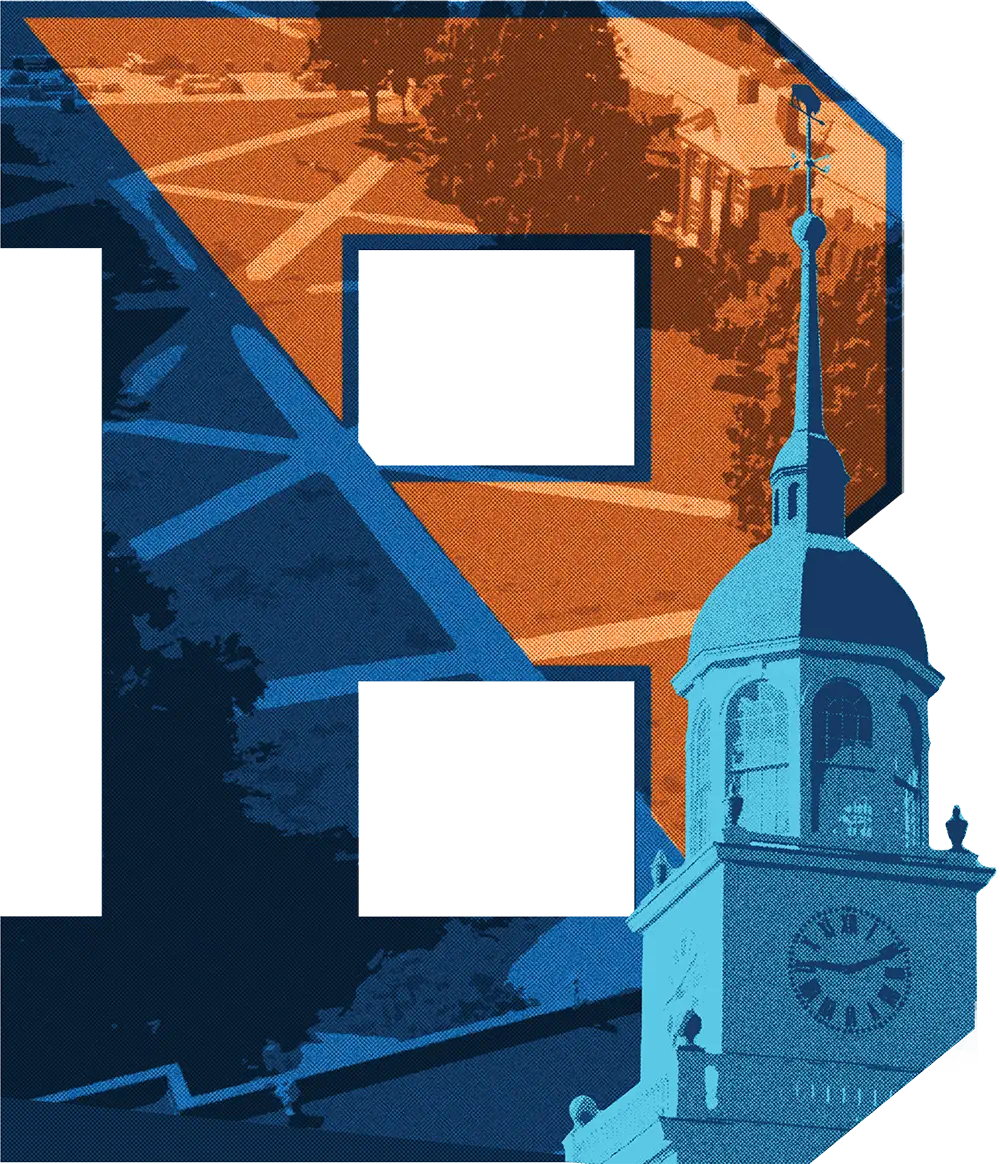
Creating an Inclusive, Equitable Community
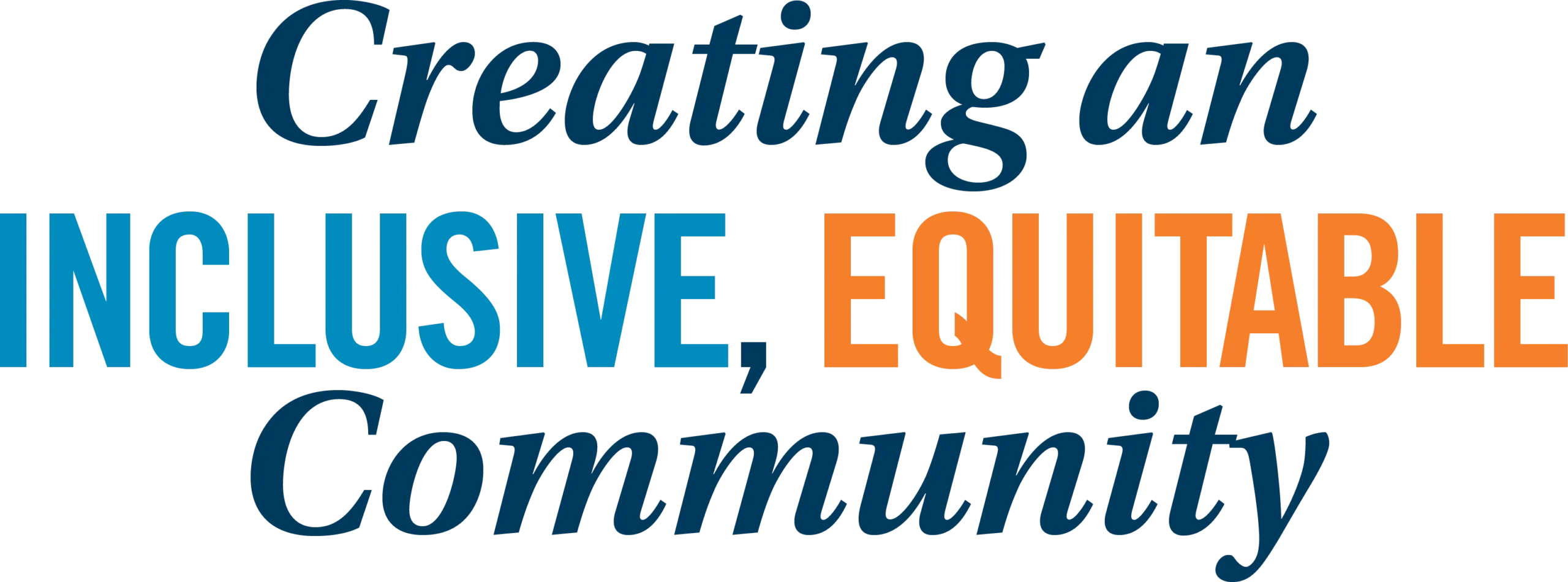
What’s happening?
The Supreme Court’s decision overrules legal precedent that allows admissions offices to consider the race of qualified applicants as one factor in their work to create a diverse learning environment for the benefit of all students. The ruling prohibits affirmative action in university admissions and disregards the educational benefits of a diverse student body and the societal benefits of ensuring graduates are effectively prepared to make meaningful contributions in the world.
“Bucknell’s commitment to diversity and equity is essential to our educational excellence, and will not waver with this ruling,” says President John Bravman. “As educators, we have an obligation to ensure that our graduates are equipped to succeed in life, personally and professionally. To thrive in a diverse society, they have to seek and respect perspectives and experiences of others. If we fail to create and nurture a campus community that celebrates our differences, we will not only fail our students — we will also jeopardize Bucknell’s future as a leader in higher education.”
What’s changing? What’s not?
Why?
It’s who we are.
Bucknell’s mission is to educate students for a lifetime of critical thinking and strong leadership characterized by continued intellectual exploration, creativity and imagination. Bucknell strives to foster an environment in which students develop intellectual maturity, personal conviction and strength of character informed by a deep understanding of cultures and diverse perspectives.
None of this is possible in a homogeneous environment, says Vernese Edghill-Walden ’87, Bucknell’s vice president for equity & inclusive excellence. “Educational excellence cannot be achieved without different opinions, different perspectives and different lived experiences coming together,” she says.
It’s where we are going.
Bucknell is committed to building and sustaining a diverse community in which all students, faculty and staff experience a sense of belonging supported by a foundation of inclusion, equity and access. This is a core component of the University’s strategic plan — The Plan for Bucknell 2025 — which guides Bucknell in preparing students to confront global challenges.
It’s what’s best for all students.
Research supports that diversity on college campuses improves intellectual engagement, self-motivation, citizenship and cultural engagement — for all students, regardless of race.
It’s the future — and the now.
Our nation is becoming more diverse every year. According to data from the U.S. Census Bureau, in 2020 the U.S. population under age 18 became “majority minority,” meaning members of multiracial and racial and ethnic minorities outnumbered those who are white. By 2044, it is expected that the entire U.S. population will reach that status, and that by 2060, white individuals will make up an estimated 43.6% of the U.S. population. When a university makes a commitment to diversity, it’s making a commitment to being prepared for the future.
It’s a fact: Diversity and academic excellence go hand in hand.
All Bucknell students are admitted based on merit. To receive an offer of admission, a student must demonstrate that they are capable of excelling in Bucknell’s rigorous academic programs. It’s important to note that Bucknell’s focus on increasing diversity has also increased its appeal to the brightest students from all backgrounds, which has increased the University’s selectivity. Bucknell’s acceptance rate dropped from 37.5% in 2020 to 34.5% in 2021 and then 32.6% in 2022. In those same years, the University saw increases in both enrolled students of color and first-generation students, seeing an average growth of 5% and nearly 65% year-over-year, respectively. This indicates that qualified students who in the past were not aware of Bucknell due to lack of recruitment in their area or who felt excluded from Bucknell’s community are now seeing a path to their future on our campus.
As universities and colleges across the country begin their work to minimize the consequences of the court’s decision, Bucknellians can be assured that our institution is well-equipped and prepared to continue our pursuit of diversity as part of our commitment to excellence.
Preparing for the Future
“Bucknell prides itself on providing an outstanding education that prepares students to be successful in any endeavor in the world — a world that is becoming more and more diverse,” says Kevin Mathes ’07, assistant vice president & dean of admissions. “To do that, it’s important for Bucknell to be a microcosm of that world, a place where students can learn to effectively collaborate with people from Houston, New York City and Mumbai, India, as well as rural towns across America. By doing what is needed to best prepare our students, we are fulfilling Bucknell’s educational mission and ensuring the University’s legacy of excellence.”
Admissions offices have to be more nimble and strategic than ever about their recruitment, enrollment and retention efforts. Bucknell’s admissions team has been expanding its footprint and sharpening outreach efforts to make high-achieving students from geographically diverse areas and wide-ranging socioeconomic backgrounds more aware of Bucknell and what it has to offer. Just as critical: They are creating a cohesive network of resources to ensure that once students are here, they want to stay.
The efforts have been effective. The incoming Class of 2027 is expected to be one of the most diverse in Bucknell’s history (see “Class of 2027 Snapshot”).
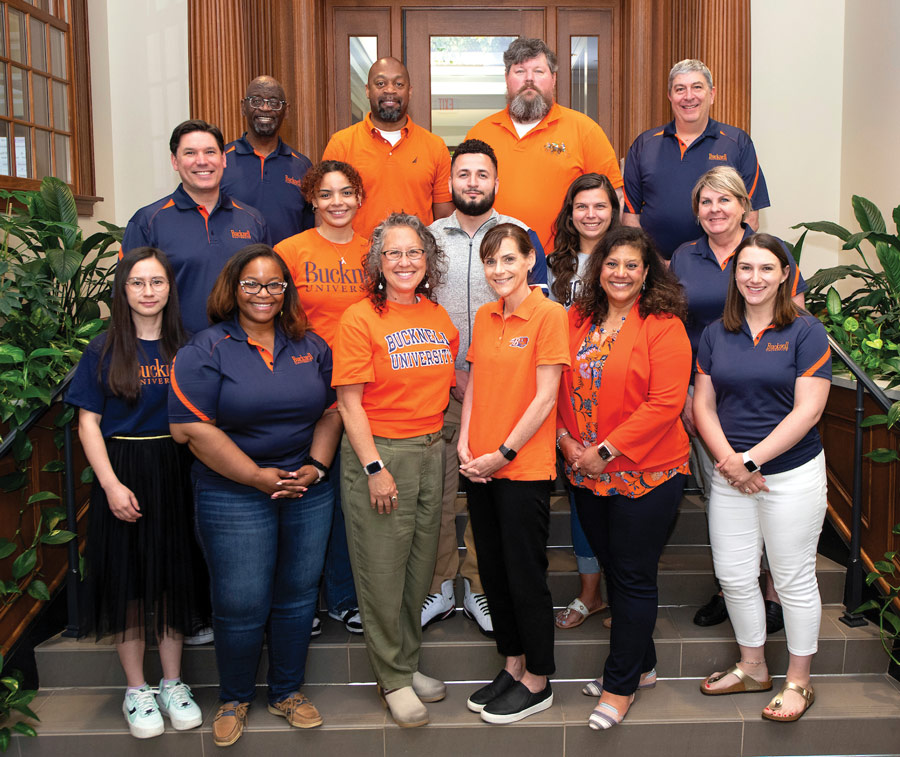
Forming the Gateway Scholars Program: Forty members of the incoming Class of 2027 will be part of the new program, which offers scholarships to support high-achieving, first-generation students, eliminating the inclusion of federal loans from their aid packages. Participants benefit from ongoing research, mentorship and guidance to support their success, including GenFirst!@Bucknell, which pairs first-generation students with faculty and staff members who were also the first in their family to attend a four-year institution.
Creating the Center for Access & Success: The Gateway Scholars Program is just one of Bucknell’s five signature and national pathway programs that will fall within Bucknell’s new Center for Access & Success. When it becomes operational in the fall, the center will provide mentorship and other forms of support to help students from underrepresented backgrounds have a positive Bucknell experience throughout their four years. (Learn more about the center.)
Building partnerships in strategic locations: Bucknell has developed and expanded relationships with charter schools and community-based organizations in such cities as Philadelphia, Chicago, Dallas, Houston, New York City and Los Angeles. Recruiters actively engage with educational leaders in these communities to identify outstanding students.
Facilitating travel: Many students say their college decision was solidified during a campus visit: “It just felt right.” In order to ensure that students from all areas and backgrounds have a chance to experience Bucknell’s campus, the University offers Journey to Bucknell, a program that covers travel and accommodations for a two-day visit. Bucknell recently expanded the program so that each invited student may travel with a parent or guardian. In addition, Bucknell launched a new event — the Affirming Diverse Identities Reception — as part of Admitted Student Days and provides students wishing to attend financial assistance if needed.
Giving a taste of Bucknell life: The Bucknell Academy Summer Experience is an opportunity for high school students to spend a week living on campus, interacting with faculty and experiencing hands-on learning. Bucknell actively recruits participants from diverse communities.
Tapping technology: Bucknell recruiters use data-collection and analysis tools to identify academically strong students who may face barriers to education, based on attributes such as low median family income, household education levels and participation in lunch-assistance programs.
Diversifying the team: “One thing that we hear in our profession is that students want to see themselves on an admissions team,” Mathes says. “So as we grow our professional staff, we want to make sure that we are attracting top talent while also being mindful of diversity. Having people with different backgrounds not only helps on-the-road recruitment, but also informs how we communicate to students.”
Class of 2027 Snapshot
*Enrollment increases over previous year as of May 2, 2023.
Equity Drives Success
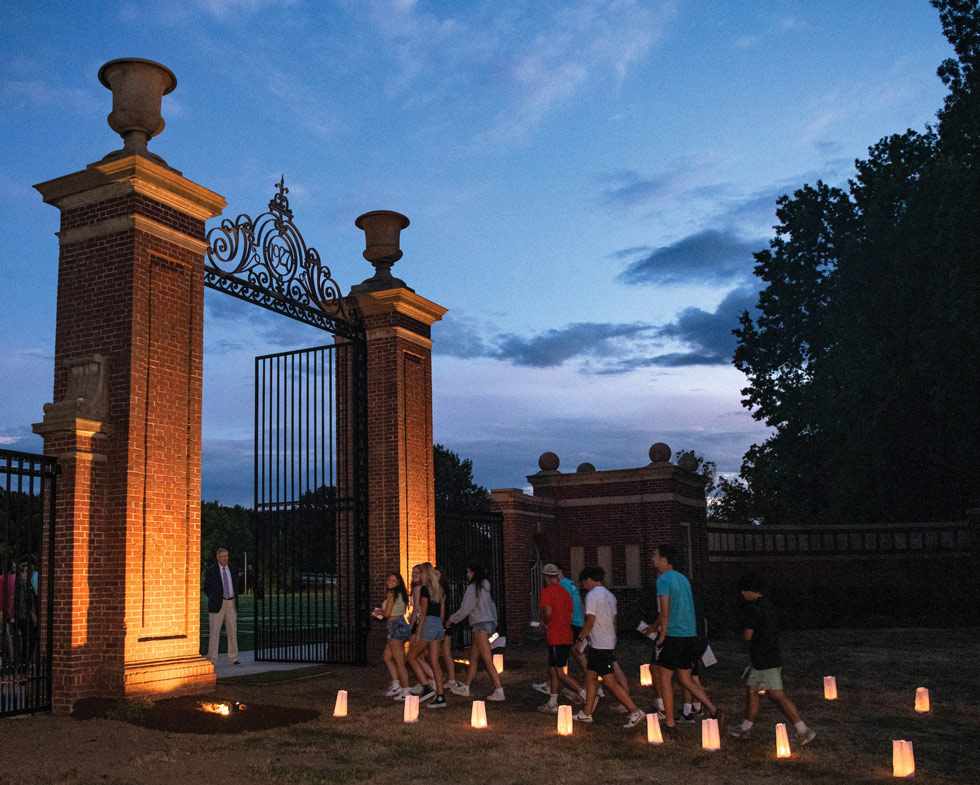
ucknell is working to create a truly equitable community — where students feel fully part of campus life, where they have space and access to opportunities that will enable them to learn, live and thrive. Launching this fall, Bucknell’s new Center for Access & Success will bring the University closer to that goal by providing a cohesive system of mentoring and support to enhance students’ ability to excel at Bucknell.
The center’s programming will ensure that students from first-generation, low-income and underrepresented backgrounds have mentorship, academic enrichment resources and a supportive community that will help them pursue their personal and professional goals and become active, engaged members of the campus community.
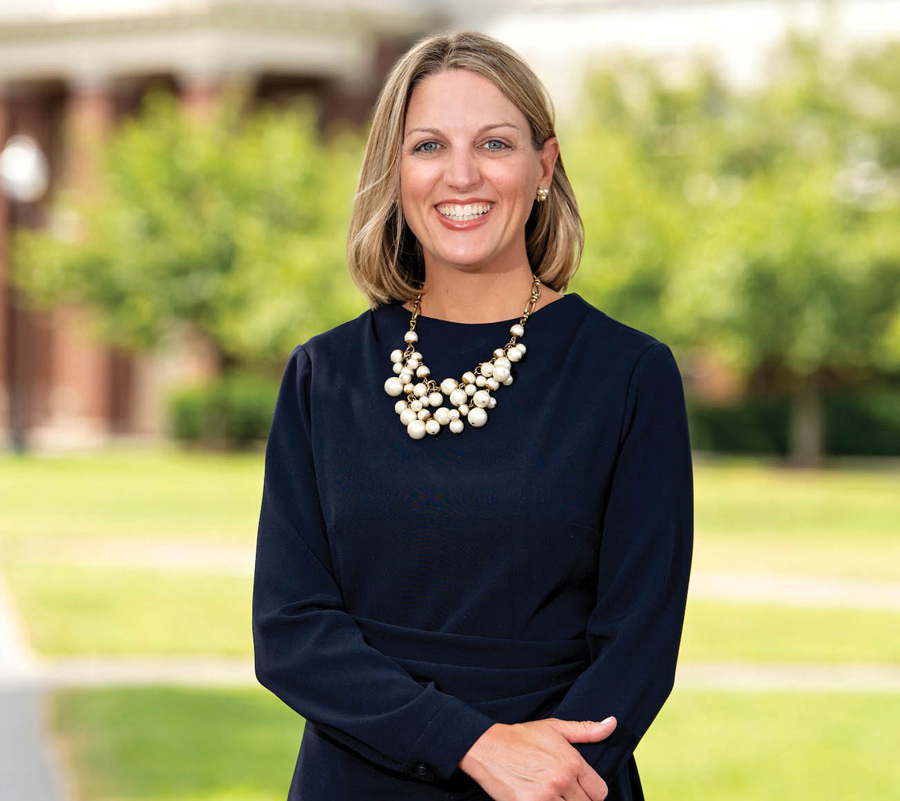
“Bucknell has a long tradition of recruiting students from diverse backgrounds, but their success requires a commitment to support their entire Bucknell experience,” Keegan says. “This center will allow the University to better serve underrepresented students through a more robust, cohesive and strategic approach.”
The center will serve students enrolled in Bucknell’s five national and signature pathway scholarship programs: the Gateway Scholars Program, the Charles T. Bauer Scholars Program, the Posse Scholars Program, the Langone and Langone-Walling Scholarships and the Bucknell Community College Scholars Program. By taking a relationship-based approach, the center’s staff will work to strengthen the students’ sense of belonging and provide services tailored to meet the needs of these students and their families.
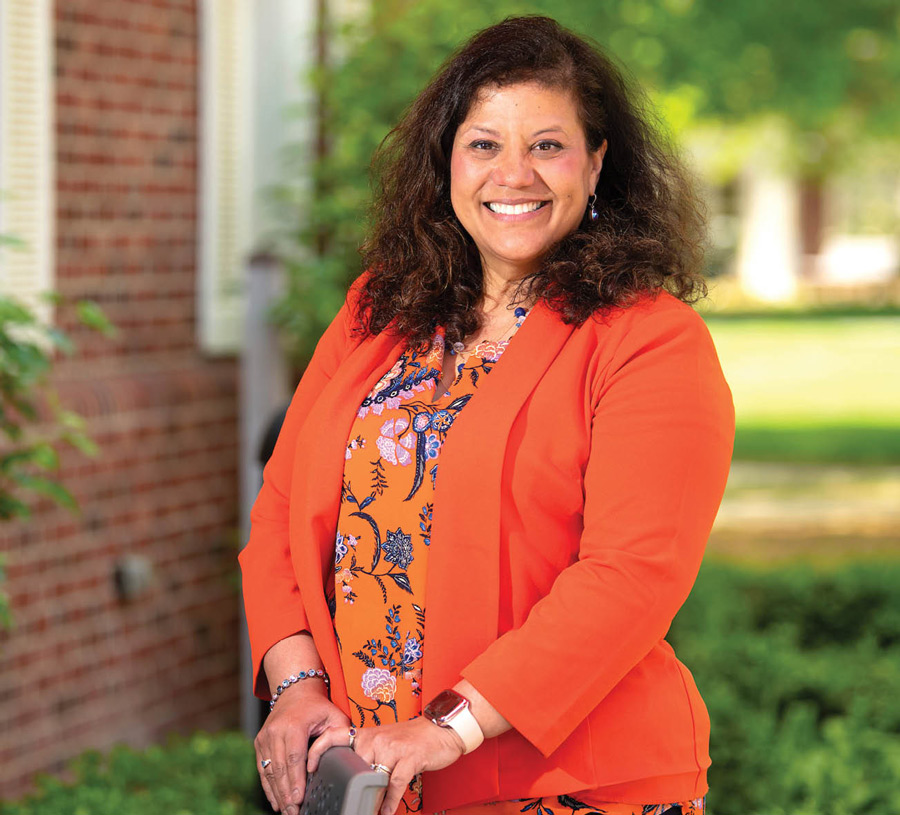
“I was a first-generation student and relate to the imposter syndrome some of these students feel,” Mercado says. “They arrive with so much talent and promise. They often need reassurance that they belong here — and they do. I receive feedback from faculty members that students from these programs are intellectually curious and bring perspectives that add value to their classrooms. So our goal is to build a supportive community and foster an environment of belonging so they can be successful.”
Impact in Action:
Bucknell Community College Scholars
BCCSP was launched in early 2000 to help high-achieving, low- to moderate-income community college students who want to take their education beyond an associate’s degree. What sets BCCSP apart is that it is more than a pipeline program. BCCSP provides the opportunity for about 20-25 community college students to immerse themselves in life at a residential university by staying and studying on campus for six weeks each summer.
Bucknell recruits from six schools: HACC, Lehigh Carbon Community College, Montgomery County Community College, Community College of Philadelphia, Reading Area Community College and Garrett College.
Participants are paired with a faculty mentor and take two summer classes, which enables them to earn credits that can be applied to their home institution — or toward a four-year degree. After they successfully complete the summer program, they may apply to Bucknell for transfer admission and financial aid.
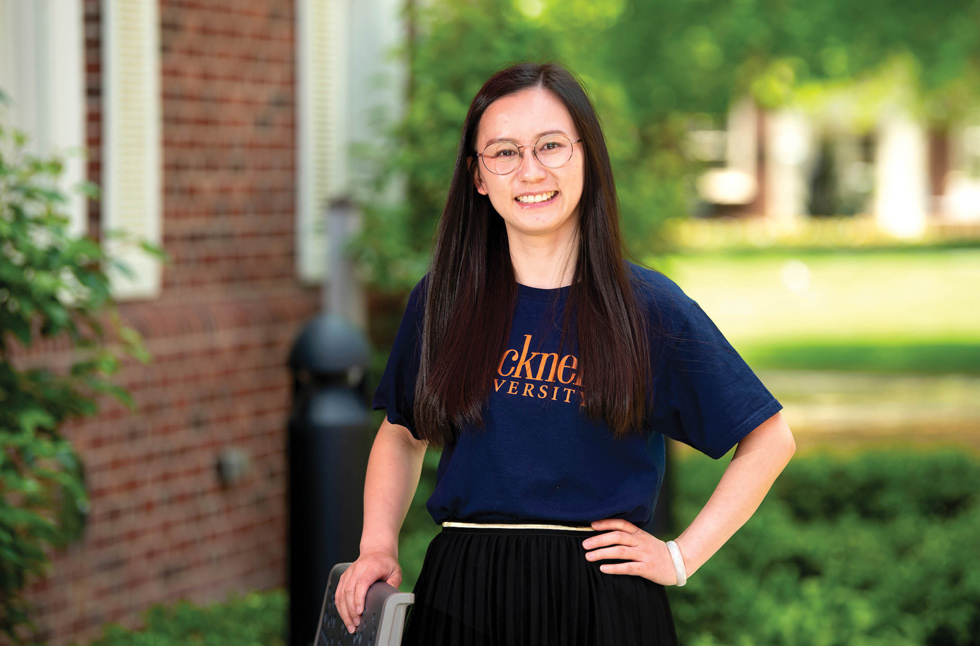
As Li experienced, that value extends beyond academics. “Before the BCCSP, I was very introverted and quiet,” she says. “I was self-conscious about having an accent. At Bucknell, people wanted to talk to me. They asked me what I needed and what they could do to make my experience better. I learned that people in the program cared about me genuinely and were invested in me.”
Li returned to HACC with newfound confidence — and a voice. She became outspoken and began taking on leadership positions on campus. When she applied to Bucknell, she decided to major in education. At Bucknell, she became a diversity intern with the admissions office, seizing an opportunity to interact with prospective students and share her experience as a first-generation, international and transfer student. When a full-time admissions job opened up at Bucknell just as she was graduating in 2022, she says it felt karmic. Li worked as an admissions recruiter until July. In August, she moved to Boston to pursue her doctorate in education at Boston University.
“Many students want to make a difference in society and contribute to the world,” she says. “I think what makes this program special is that it awakens people’s inner, true self and helps them see their value and potential.”
The Change Makers
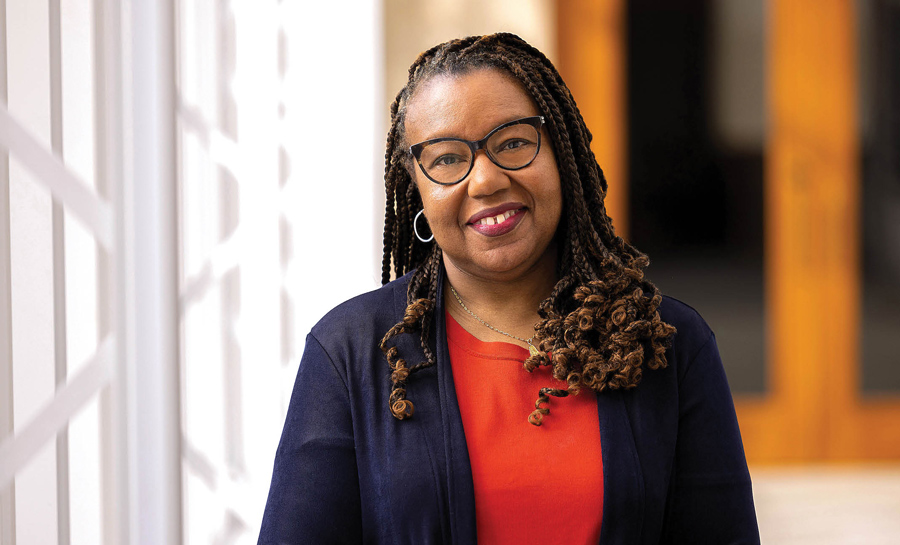
The Role Model
Vernese Edghill-Walden ’87
Her efforts as a student led to the establishment of the Multi-Culture Center (now called Multicultural Student Services) in 1986. Nearly 40 years later, Bucknell students from all backgrounds — including international cultures, identities and religious faiths — are benefiting from its robust network of events, programming, affinity groups, leadership development and learning opportunities — all of which trace back to Edghill-Walden’s initiative.
“At Bucknell, I fell in love with being a student leader and recognized that I wanted to pursue a profession in higher education,” she says. “I realized Bucknell didn’t have many role models who looked like me. It is easier to see what is possible for yourself when you have guidance from someone who identifies with your own lived experience.”
Seeing that was lacking, Edghill-Walden wrote a research paper about the importance of providing support systems to students of color. She presented those recommendations to President Gary Sojka, which led to Bucknell approving space for a multicultural center. “I’m thrilled that I’m returning to Bucknell, the place that shaped who I am. I hope students will be able to see themselves in me and know that they can help transform a culture.”

The Community Builder
Marissa Calhoun ’10
Calhoun, a Posse scholar and English — film/media studies and women’s & gender studies double-major, was the inaugural president of Bucknell’s BSU. Under her leadership, the BSU had a “groundbreaking first year” in which it organized social events as well as educational and cultural programming to benefit the entire campus. One notable achievement of that first year: Calhoun and her peers revived the Black Arts Festival, an event that had enjoyed a long and rich history at Bucknell since its founding in the 1960s but had been on a 10-year hiatus.
In the 13 years since Calhoun and her classmates stepped up, Bucknell’s BSU has become a thriving organization responsible for not only enhancing the campus experience for its members, but also for promoting a campus culture that respects and appreciates different backgrounds, ideas and identities.
“In addition to reviving the Black Arts Festival, we created community and dissolved much of the separateness between organizations of the Black diaspora at Bucknell,” says Calhoun, who now works in global creative marketing at Netflix. “I believe the success of cultural events at Bucknell is crucial in order to foster a community where all students feel represented by campus life and to create an environment where all students are exposed to the diverse perspectives of the world.”
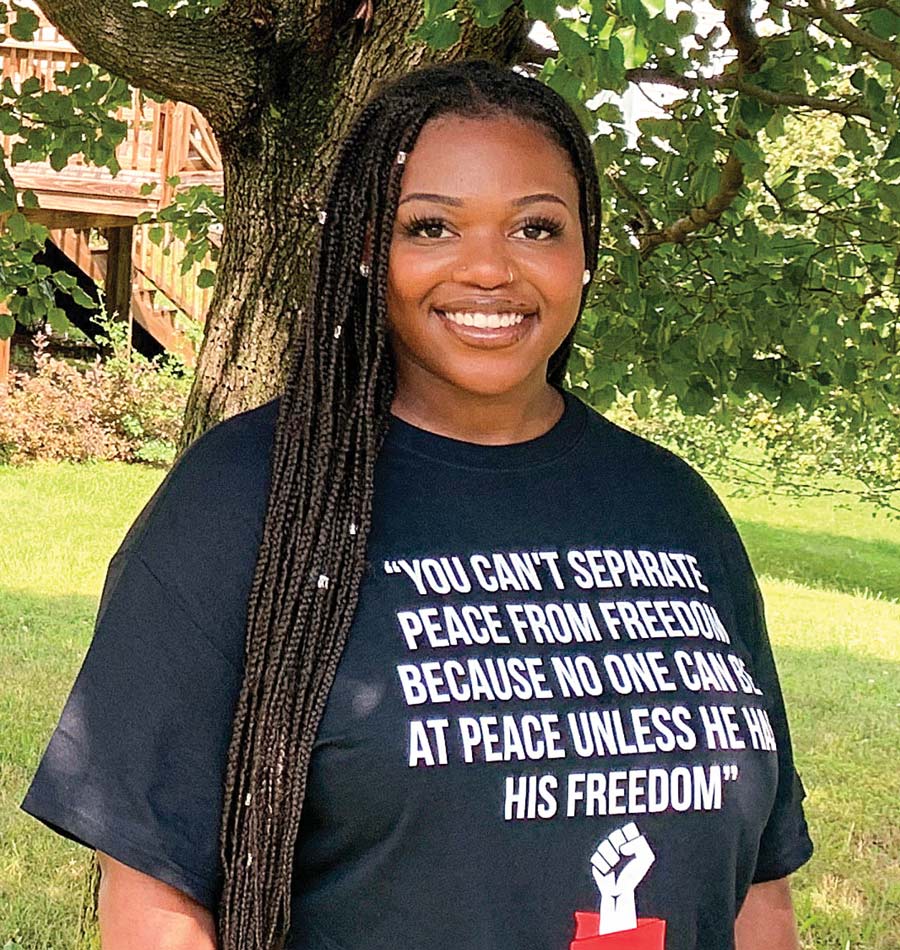
The Advocate for Justice
Jerra Holdip ’23
Eager to do more, she participated in the Bucknell-Mauch Fellowship Program, in which she helped prepare students to vote in the 2020 election by leading in-depth discussion forums on crucial issues. For all these efforts — and her leadership as an executive board member of Bucknell’s Black Student Union — Holdip was honored with a 2022-23 President’s Diversity & Inclusion award.
“Before coming to college, I had loose ideas of how laws and policy surrounding issues like these are created,” Holdip says. “What I’ve come to realize in my courses here is how much diverse communities are directly affected.
“Engaging with students who are motivated to learn and actively participate in politics and government has further encouraged me to go out and be the change I want to see. My ultimate goal is to receive my J.D. and practice law. I want to be instrumental in institutions and enforcing laws that really protect and serve everyone.”
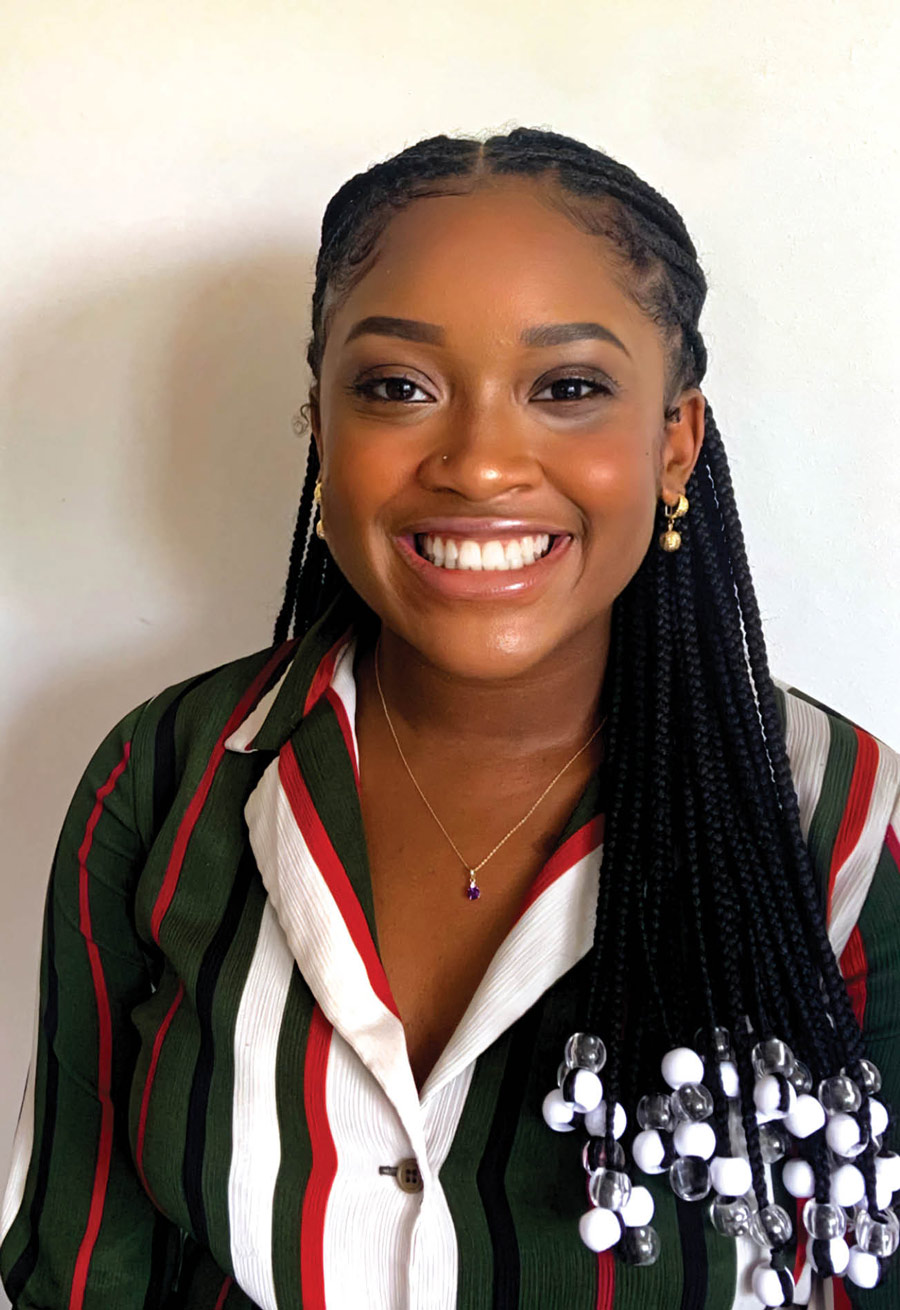
The Nurturer
Reece Pauling ’24
As soon as she arrived on campus, Pauling started volunteering at Bucknell’s farm, where she developed an appreciation for the empowering experience of growing food and feeling connected to the earth. In 2022, an opportunity arose for her to pursue a research project with the State Correctional Institute — Coal Township. She began investigating horticultural therapy — how green initiatives, such as farming and gardening, can benefit people’s mental and physical well-being while also helping them to develop useful vocational skills.
Her work eventually led to the creation of the Prison Garden Project, a program in which incarcerated individuals plant, grow and harvest flowers that are then donated to residents of local nursing homes and rehabilitation centers. The project is still in early stages, but Pauling hopes it will blossom into a permanent fixture at the prison. For her efforts, Pauling was recognized as a 2023 Campus Sustainability Champion by the Pennsylvania Environmental Resource Consortium.
“My personal experience working with Bucknell’s farm definitely shaped my passion for this project and guided me in understanding how important gardening can be,” says Pauling, who spent the spring semester in Kenya conducting research to benefit wildlife conservation and local communities. “Environmental practices and activities are extremely beneficial and should be available to all people. For those who face time in prison, rehabilitation and successful releases should be the goal. Because of my majors, I hope that I can address the injustices seen in environmentalism and bring to light the intersectionality of it and how there are layers to the environment when involving different groups of people.”
Cultivating a Talented, Diverse Workforce
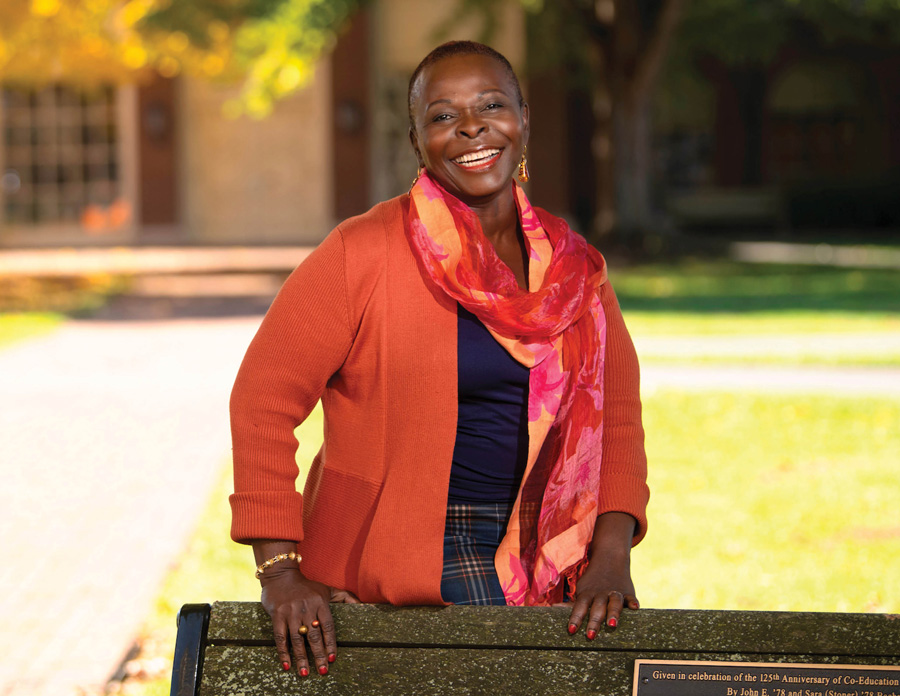
Targeted programming, professional development and affinity groups certainly help these efforts (see “Growth Opportunities,”). But as Nicole Whitehead, vice president for human resources, and Angèle Kingué, associate provost for faculty engagement & inclusion, know, those efforts will only be effective if diversity and inclusion are at the heart of an institution’s mission, operations and ethos.
“It’s well established that having diversity at all levels of an institution fosters student success,” Whitehead says. “In my role, I need to ensure that every individual we hire best supports our students — that is the reason we are all here. So, given both those things, it’s very clear why DEI is a priority at Bucknell. I don’t see DEI as something you accomplish with a single hire or with a training session. I see it as a collective experience, part of the University’s infrastructure. DEI isn’t something we do. It’s who we are.”
Kingué begins meeting with prospective faculty members during the hiring process, and continues working with them throughout their careers at the University. She wants them to be aware of the support systems and mentoring resources available to them at Bucknell. But these conversations do more: They convey that Kingué — and Bucknell — care about them as people. That can be a differentiating factor for a professor considering multiple competitive job offers. Kingué takes an active role in the trajectory of their professional lives as soon as they arrive on campus and works with them to map out individualized plans for success. Her goal is to deliver two messages: I am on this journey with you, and we’re going the distance.
“I see my job as making it clear to these faculty members that they can grow roots here, and there is a network around them that is here to support them,” says Kingué, who says taking genuine interest in people and having ongoing meaningful interactions with them helps to foster a space of belonging. “It’s a human-centered approach, and they are at the center. I want them to know that they belong here. It’s a way of saying, ‘I see you, and you matter.’ ”
Growth Opportunities
The Center for the Study of Race, Ethnicity & Gender: Supports faculty development, scholarship, interdisciplinary exchange and collaboration on issues of race, ethnicity and gender as well as intersections with other aspects of difference.
The Griot Institute for the Study of Black Lives & Cultures: Provides faculty and student intellectual and creative engagement with the interdisciplinary investigation of the cultures, histories, narratives, peoples, geographies and art of Africa and the African diaspora.
University DEI Councils: All across the University, division- and college-level diversity, equity and inclusion councils meet regularly to discuss opportunities for improvement and growth within their areas.
President’s Diversity Council: An advisory and leadership team responsible for developing, overseeing and monitoring University-wide efforts to achieve Bucknell’s commitment to diversity as a core institutional and educational value. Whitehead and Kingué are council co-chairs.
Equity & Inclusive Excellence Faculty Fellows: An interdisciplinary team of faculty members from all three colleges works closely with the provost’s office to enhance diversity strategies across campus.
Equity & Inclusive Excellence Council: Representatives from nine administrative departments work together to advance DEI initiatives.